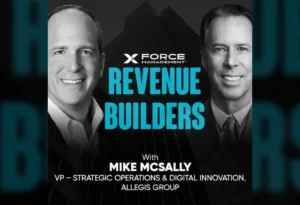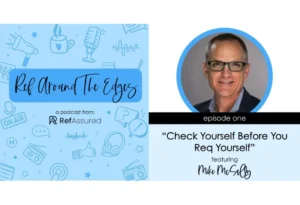Candidates embellishing on their resume is nothing new. Embellishment has been around since the advent of the CV. However, there is renewed concern about people’s truthfulness on resumes. Are we supposed to believe that the advent and access to ChatGPT, an AI-powered language model, is going to dramatically increase a candidate’s willingness to stretch the truth on their resumes? Is the access to ChatGPT going to increase the number of people lying on their resumes today than in years past? Of course not.
The fact of the matter is candidates can simply embellish quicker and better with the use of AI. For more than 30 years I have heard that the word “reference” is taboo. If research shows that 72% of people fabricate on their resume, the better question becomes, how does a $300B industry ensure that the candidates they are presenting can not only do the job but excel at it and get along with their teams?
I spent 30 years in an industry where I was the black sheep, all because of my willingness or maybe even stupidity to challenge people’s beliefs around references. I would ask endless times a week, “how do you know your candidate can do this very job that your client is potentially hiring them to do?” That question alone made for some uncomfortable silence but mostly created an endless response of reasons why not to call on references. Despite receiving answers that nine times out of ten amounted to “I don’t really know this person can do the job, but I have a good gut feeling they can”, the conversation soon reverted back to why references were not applicable in this “one off” scenario.
“Don’t Trust Your Gut” — Malcom Gladwell
Malcom Gladwell, who knows a thing or two about research, found that the very best professionals — FBI Profilers — Clinical Psychologist get “IT” right based on their gut just over 50% of the time. Your gut is basically is as reliable as a flip of the coin. The recruiting industry has always struggled with its reputation, relying on their gut millions of times a day. If the very best trained and educated professionals in the world can only assess talent correctly just over 50% of the time; Why should we believe that just because a recruiter had a 20-minute phone conversation with a candidate they will get it right?
The average recruiter looks at someone’s resume for 6 seconds to determine whether to engage with a candidate or not. That review typically leads to a twenty/thirty-minute call with a recruiter. That recruiter who has never performed the job they are trying to fill, let alone worked at the firm with the opening, is tasked with assessing and predicting the outcome. Since having the actual skill of the job they are trying to fill and or working at the company is not a reasonable expectation for any recruiter, what should the industry be doing to ensure their candidates are going to succeed personally and professionally? Who knows maybe Gladwell got it wrong in the research and needs to include recruiters in his next study.
If You Want to Predict the Future, Study the Past!
I have heard every “rationalization or justification” as to why not to call on references. But the number one reason that I have been told endless times is “Speed to Market”. Hundreds of smart and well-intended people have looked me in the eye and have said to me, “We don’t have time to do references.” They then follow with, “This position is so important and we need to fill it immediately.”
Over my career I have asked endless CIO/CEO to stack rank what is the most important “THINGS” that go into building a great team and speed was never mentioned. Not once. As a matter of fact, they specifically said that they would never compromise with an under-qualified person just to fill the role faster. Yet, an entire industry is believing that speed-to-market matters.
The questions that need to be answered are:
- If you are filling jobs quickly with the wrong people, who benefits?
- Why is it so uncomfortable for professional recruiters to speak about past performance?
We have always been and never more so than today, a society fixated on performance. We get real time data on industry performance every second the stock market is open. Public companies provide us with annual reports. Government officials and CEOs have approval ratings. Professional athletes’ statistics are plastered all over television and the box scores. So, why is there such a reluctance to ensure that both parties of the hiring equation succeed?
Babysitters and New Hires
As a father of four can you imagine if I told my kids, “I have no idea who this human being is that is going to spend 6 hours with you tonight, but they seemed nice on the phone, so we’ll see how it goes.” No one in their right mind would invite a complete stranger into their lives to watch their children without detailed references and background information. So why do successful recruiting professionals continue to flood clients with strangers that they know nothing about and expect to charge a premium for that introduction? Because in the never-ending pendulum that swings from filling openings, to lay offs, to start the hiring cycle all over again, coupled with the belief that there is a shortage of access to great candidates, employers are not demanding higher quality from recruiters. And who am I to judge an industry that can charge the same whether they do references or not (wink wink).
So, while the new noise out there is about the increase of resume fraud, which we have determined is not new, the real energy should be focused on what recruiters and talent acquisition leaders are doing to ensure they are putting two smart people together that can both benefit from working with one another.




